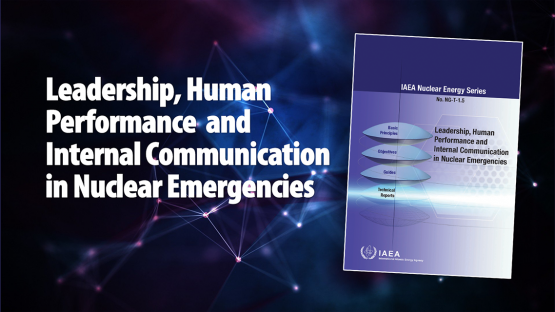Nuclear emergencies happen extremely rarely, but when they do, appropriate leadership qualities, human performance capabilities and internal communication mechanisms are essential to minimize the consequences. A new publication in the IAEA Nuclear Energy Series, Leadership, Human Performance and Internal Communication in Nuclear Emergencies, highlights the importance of the human factor during crisis situations.
This publication, intended for operators, regulators and those working in emergency preparedness and response, provides a comprehensive analysis of the importance of leadership and communication, and discusses key attributes of leadership in emergencies, as well as the profound influence that stress can have on those involved and how to address it as part of crisis communication efforts.
Emphasis in the publication is placed on the unpredictable nature of emergencies. “Emergencies do not often unfold as they have been modelled,” details the report. “In unusual situations, which any real emergency will certainly be, human beings are a more adaptable and intelligent resource than any machine logic. However, human beings also have limitations and do not behave perfectly, even in the most ideal situations.”
And although it is difficult to predict the circumstances of an emergency, there is much that can be done to mitigate some of the most detrimental consequences. Training exercises, made to simulate realistic crisis conditions, can help prepare leaders to deal with emergency situations, and knowing which personality traits fit certain job roles can help to pair those in leadership positions with proper responsibilities during a crisis.
The publication also analyzes job site reviews, comprehensive communication planning and other preparedness practices.
“The more you’ve thought about the situation and its potential ramifications, the more resilient you are going to be when there is a need,” said Pekka Pyy, a senior expert on organization and management systems at the IAEA's Nuclear Power Engineering Section, and the scientific secretary of the publication.
The IAEA has published a series of publications within its Emergency Preparedness and Response (EPR) framework to support the implementation of safety standards and technical guidance in Member States.







